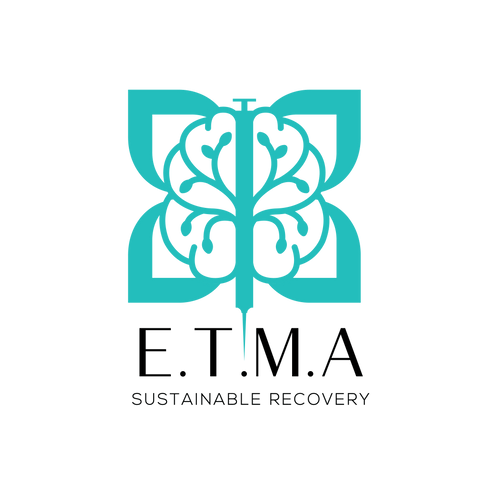Stinking Thinking in Recovery


“You’ve stopped using, started attending support groups, and things are getting better—until your own thoughts start sabotaging your progress.”
This kind of self-defeating mindset is known as “stinking thinking”—a term coined in recovery circles to describe the negative thought patterns that can lead to relapse. While the physical substance may be gone, the mental patterns that fueled addiction often remain, creating emotional landmines on the path to healing.
What Is Stinking Thinking?
Stinking thinking refers to habitual, negative ways of thinking that can derail recovery. These thoughts may sound rational but are actually rooted in distorted perceptions, past trauma, low self-worth, or unrealistic expectations. Left unchecked, they can lead to poor decisions, relapse, and a return to harmful coping mechanisms.
According to the Substance Abuse and Mental Health Services Administration (SAMHSA), over 40% of people in early recovery experience significant mental health struggles related to cognitive distortions, underscoring the need to address thought patterns—not just behaviors.
Modes of Stinking Thinking (and How to Spot Them)
1. Overgeneralization
This is when one negative event becomes a pattern in your mind: “I messed up this one time, I always mess up.” It’s like using one bad day to judge your whole journey.
Recovery Tip: Keep a reality checklist. One bad moment doesn’t define your progress.
2. Minimization
This involves downplaying achievements or dismissing important problems: “Sure, I’ve been clean for a month, but that’s not a big deal.”
Recovery Tip: Celebrate small wins—they matter more than you think.
3. Maximization/Magnification
This happens when you blow mistakes or flaws out of proportion: “I said the wrong thing in group—I’m a failure.”
Recovery Tip: Ask yourself: Will this matter in a week? A month?
4. Emotional Reasoning
This is believing something must be true just because you feel it: “I feel worthless, so I must be worthless.”
Recovery Tip: Feelings are real, but they’re not always facts. Try to separate emotion from evidence.
5. Mental Filtering
Focusing only on the negative and ignoring the positive: “Everyone noticed when I stumbled, not when I shared something helpful.”
Recovery Tip: Write down three positives for every negative thought.
6. All-or-Nothing Thinking
Seeing things in extremes—total success or total failure: “I slipped once, so I’m back at square one.”
Recovery Tip: Remember, recovery isn’t linear. One slip doesn’t erase progress.
7. Jumping to Conclusions
Making assumptions without real evidence: “They didn’t reply—they must be mad at me.”
Recovery Tip: Pause and verify. Ask, don’t assume.
8. Should-isms / Musterbation
Using harsh rules for yourself: “I should be better by now.” “I must never make mistakes.”
Recovery Tip: Replace “should” with “could.” Be kind to your learning process.
9. Labeling
Turning behavior into identity: “I made a mistake—I’m useless.”
Recovery Tip: You are not your mistakes. Change “I am” to “I did.”
10. Personalization
Blaming yourself for things outside your control: “If I were better, my family wouldn’t be upset.”
Recovery Tip: Own your part, not everyone else’s. Recovery is yours to carry—but not alone.
Why It Matters: The Risk of Relapse
Stinking thinking doesn’t always lead to relapse—but it lays the groundwork. According to a 2023 relapse study by NIDA, more than 60% of relapses are preceded by negative thinking patterns, not external triggers. These thought distortions gradually chip away at motivation, self-worth, and emotional resilience.
Understanding these patterns early helps prevent mental relapse before it becomes a physical one.
How to Overcome Stinking Thinking
1. Talk It Out
Whether it’s with a therapist, sponsor, or trusted support group, speaking your thoughts out loud gives them less power and allows others to offer perspective.
2. Challenge the Thought
Use tools from Cognitive Behavioral Therapy (CBT) to ask: Is this true? Is there another way to see it? Challenge assumptions with facts and compassion.
3. Practice Daily Mindfulness
Mindfulness trains you to observe your thoughts without judgment. A 2024 study published in Addictive Behaviors journal showed that daily meditation can reduce relapse risk by up to 30% when combined with other recovery supports.
4. Use Affirmations and Recovery Journals
Writing positive affirmations or keeping a thought-tracking journal can help replace negative cycles with healthier ones. Even five minutes a day can make a difference.
Quote to Remember
“Don’t believe everything you think. Thoughts are not facts.”
Silver Lining
Stinking thinking doesn’t mean you’ve failed—it means you’re human. The mind needs just as much healing as the body. Recognizing these patterns is actually a sign of progress. With support, awareness, and the right tools, you can retrain your thoughts and protect your recovery.
At Solace Asia, through Cognitive Behavioural Therapy (CBT), we help individuals not only detox their bodies but also reframe their minds. Whether you’re early in recovery or rebuilding after relapse, you’re not alone—and help is within reach. Contact us today to schedule an appointment.

